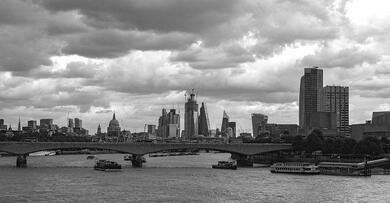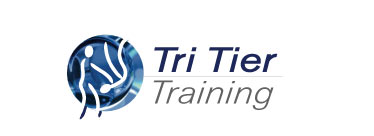
On Resilience ...
When it comes to helping people: avoid dangerous situations and flow, when faced with life's challenges, there are several areas, we address in training. These represent the three tiers of Tri-Tier: stillness, resilience and tactics. All three have been invaluable to me, in my work in the private security sector, when having to adapt to fast paced events, or having to handle fear, or complex scenarios.
Right now, I want to focus on resilience. This middle tier represents a quality and an ability. It's something that many of my clients have shown an interest in, not just in terms of personal safety but also from a performance angle, realising that it can help them, in key leadership roles and particularly, when having to achieve results and steer their organisation or company, through a rapidly changing landscape.
Resilience has been recognised by many people, as a valuable attribute, over these last few difficult years, as crisis after crisis continue to appear. Organisations, companies and family offices must also cultivate this attribute from diverse angles, if they are to adapt to global turbulence.
What follows are some from the hip observations on resilience. I've introduced these to numerous clients at individual and team level, as well as high profile figures and those whose work requires them to perform in high pressure environments or handle confrontation.
Don't neglect the inner landscape:
It's easy to fall into the trap of simply looking at external factors that can be acquired to bolster resilience, at individual or organisational level. However, my years of training in numerous martial arts and mind body methods have shown me how, when we focus on our inner landscape and it's various layers, we can dramatically improve our ability to adapt to external pressures. We build our energy levels, greatly enhancing our readiness to keep going, when faced with multiple challenges.
The more connected we are to the internal; the easier it will to be find our centre and stay calm, even when our external world is being rattled. In Tri-Tier, we utilise subtle postures, stances, relaxed movement, diverse breathing practises to explore the inner world. Here then, it is the tier of stillness that supports our resilience.
Armour versus flexibility:
A crude approach to resilience may only focus on forging a hard exterior, a hard attitude and strong front. It is important that any outer measures do not weigh down or wear down the individual or the infrastructure. Perhaps armour can handle impact to a point but a certain flexibility and pliability, can also help us cope with external stress. On the physical level, flexibility training can be used to remove some accumulated tension. Then, there is mental flexibility which we nurture, through diversity in the tactical training and preparation.
Let go:
Resilience is traditionally defined as an object's ability to return to it's original structure, after being exposed to external forces, impact or pressure. In regards to the individual, our ability to bounce back, after facing some difficulty or challenges, can be enhanced if we learn to let go of things that weigh us down. They could be negative emotions or thought loops. They could be restrictive or over burdening mechanisms or mind blocks. They could be the illusions, dramas or distractions we have allowed to shape our perception of events and put mist in front our options and opportunities. Allow yourself to relax, allow yourself to let go...Allow...
In the mist:
Our resilience can be really tested, when we can't see what is going on clearly or when there is confusion in our outer world or certain things don't quite add up. It can feel like there is a mist and one is not sure which path to take or how to bounce back, after some blows. Sometimes, resilience is about being comfortable in the
Mental agility and resourcefulness:
When facing a volatile situation, our mental agility can be key to helping us overcome that which lays siege to our resilience. In personal safety training, our focus is very much on avoidance but that said, we also study the handling of direct physical confrontation. Self-defence and movement skills, as well as conflict negotiation using dialogue and disengagement provide a great way to develop multiple attributes that enhance resilience. They foster a learning environment, where a person gets to learn to flow with the unexpected, to be patient, and light on their feet.
We also explore ways to develop resourcefulness and adapt, when things haven't gone to plan. Creativity and unconventional tactics are introduced, as ways to enhance problem solving skills and see things, from fresh perspectives.
Balance:
Sometimes, resilience is about maintaining or restoring physical and mental equilibrium. It doesn't however, always need to be a reactive mechanism. Sometimes, a reactive response to that which seems to have pushed against our resilience, is one that may be laced with excess emotion or, it may prove to be an over pronounced counter.
There is respiration and also inspiration:
In other articles, I will share some more in depth insights on breathing and it can help us tap into resilience. Now though, let's also appreciate the value of inspiration. When you can find those things that inspire and motivate, it can really contribute to your resilience. Inspiration boosts morale and energy levels. It could be a piece of music, a poem or a book that warms the spirit. I've often found pieces by that great composer John Williams to be uplifting.
Information saturation:
Our resilience can, in these times, get a bit bombarded with our access to so much information and news; further amplified by our increasing relationship to our phones. Sometimes, we can see how: disinformation, deliberately divisive ideas or heated opinions can disrupt society, regardless of where it comes from. Such material can also distract the mind.
Balance between the internal and external:
We've looked at the value of focusing on the interior landscape and yes, our training can show us how to go within and tap into our inner resolve. Yet, don't think resilience has to be forged, simply through self sufficiency or isolated means.
In times of crisis, one should never underestimate the value in having a good network and supportive people around you; just as you might be of support or guidance to others. Now more than ever before, the ability of humanity to work together could bring much harmony and balance to the world. Of course, if that sounds a bit too idealistic, at least by developing your network of friends, allies and like minded souls, this can bring new dimensions to your resilience; especially at a time when people can feel isolated and alone. This can be achieved through authentic interaction.
Vulnerability:
An awareness of one's vulnerabilities is part of a useful process, in improving performance and resilience. The more we understand about our relationship with vulnerability, the more we can develop on subtle levels. The realisation of our vulnerabilities and that everyone has them, in one way or another, can also help us to better connect with others. Our vulnerabilities, can also lead us on some interesting journeys.
Some years back, an impressive gentleman in very senior corporate role was asking about some conflict avoidance measures. It was our first meeting. There we were, stood in his London office, high up with a commanding view of the surrounding city, discussing serious kidnapping scenarios.
Aran
About the author :
Aran is the founder of the Tri Tier tactical training system. He specialises in personal safety, urban disengagement and resilience. With diverse experience in various areas of the security sector, Aran also works with global security companies involved in private investigations, due diligence and reputation safeguarding.
For consultations or training contact: office@tri-tier.com
